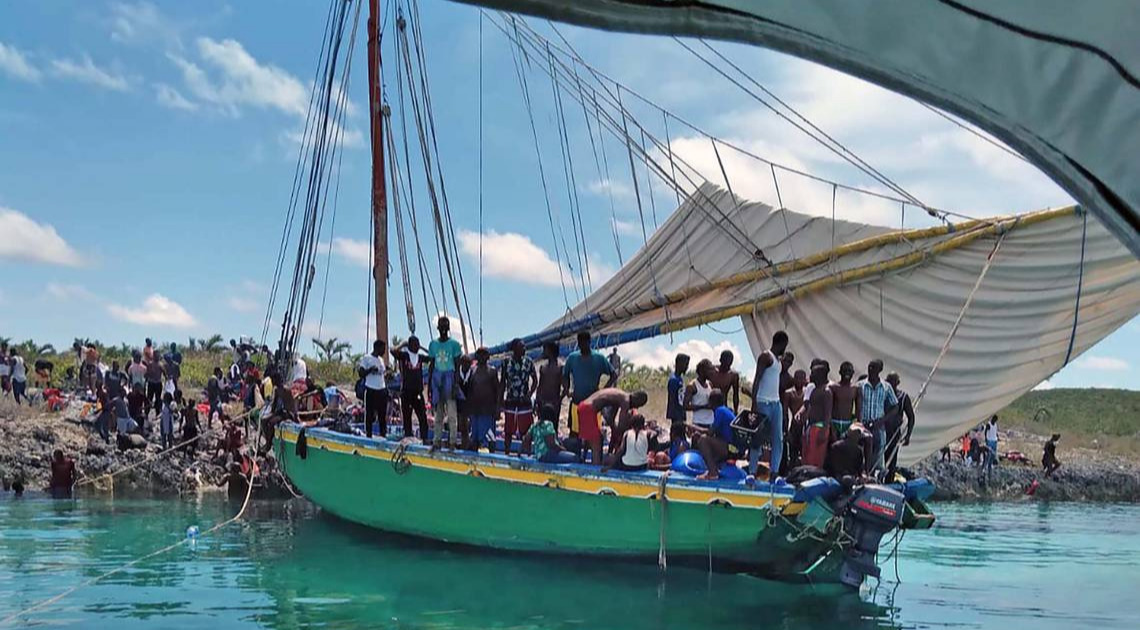
Some 400 Haitian migrants were detained on September 26, 2021 off an uninhabited cay in the southern Bahamas. BAHAMAS DEFENSE FORCE
By Roberto Morejon
The flow of Haitian migrants to the Bahamas and mainly to the United States has increased in recent times, without excluding the possibility of arriving in Cuba, either by accident or by other mishaps.
Cuban authorities recently informed about the arrival of citizens from the neighboring country to central and eastern provinces.
The travelers were welcomed here, both for humanitarian reasons and because of the close ties of brotherhood between the two peoples.
The Haitians arrived in Cuba aboard fragile boats, at the risk of losing their lives, so their eventual entry may have prevented shipwrecks and other painful outcomes.
Cuba welcomes the improvised migrants with exhaustive health investigations to determine potential diseases, including HIV and SARS-Cov-2.
The objective is to provide them with adequate conditions until negotiations with the Haitian government are completed, in order to achieve their safe and voluntary return.
It is an essential principle of Cuba to advocate for safe, orderly and regular movements to avoid fatal mishaps and human trafficking.
Although Cuba's material circumstances are difficult due to the tightening of the U.S. blockade and the impact of the new coronavirus pandemic on financial budgets, Haitians have received viable care.
Respect for their citizenship rights and integrity governs the approach to these migrant inflows, who are escaping extreme poverty, aggravated by two recent natural phenomena, an earthquake and a cyclone.
Cubans hold the people of Haiti in high esteem, from where they arrived in the eastern part of the archipelago with their families at the time of the revolution in that country.
Already in the nineteenth century a considerable group of displacements was generated towards the land of José Martí, followed by the access of braceros in the first decades of the twentieth century.
Haitians who consider it unavoidable to seek other horizons find a humanitarian reception and help to return to their homeland, when by fortuitous situations they touch Cuban soil.

